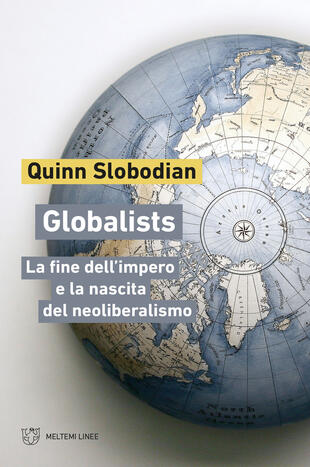

Sinossi
Nella prima storia intellettuale del globalismo neoliberale, Quinn Slobodian segue il percorso di un gruppo di pensatori, dalle ceneri dell'Impero asburgico alla creazione dell'Organizzazione mondiale del commercio, dimostrando come il neoliberalismo sia nato non tanto con l'obiettivo di ridimensionare lo Stato e di abolire le regolamentazioni quanto col fine di riorganizzarli a livello globale. Partendo dalla dissoluzione degli imperi dopo la Prima guerra mondiale, quando il nazionalismo, il socialismo e l'autodeterminazione democratica minacciavano la stabilità del sistema capitalistico globale, Slobodian reclama un nuovo modo di organizzare il mondo: lungi dal rigettare lo Stato regolatore, auspica governi e istituzioni globali capaci di isolare i mercati dagli Stati sovrani, dai cambiamenti politici e dalle turbolente rivendicazioni democratiche di maggiore uguaglianza e giustizia sociale.
- ISBN: 8855194704
- Casa Editrice: Meltemi
- Pagine: 380
- Data di uscita: 21-10-2021
Recensioni
This book is a kind of updated look at a book I reviewed a couple of days ago, The Great Transformation by Polanyi. It is that and a criticism, in part, at least of the idea that that book is a critique of neoliberalism, despite neoliberalism not having really existed at the time it was written. I’m Leggi tutto
I visited Stanford University for the first time in years this past summer, and saw that the author was giving a talk on this book at some point. I looked it up and it sounded interesting--why not find out more about this neoliberal impulse that benights those who have had power in Western and espec Leggi tutto
Neoliberal is a slippery label that is more often used to obscure reality rather than illuminate it. It is usually the domain of various bogeymen and unsubstantiated conspiracy theories. Given the fact that most vocal critics of "neoliberalism" have little interest in treating libertarian thinkers l Leggi tutto
In 1933 H. G. Wells published a novel, The Shape of Things to Come, that purported to be the dream journal of Dr. Philip Raven, an economist in the employ of the League of Nations who met an “unexpected death” in November 1930. Raven had been dreaming of the future, and his journal projected the Leggi tutto
Speaking as someone who has confronted “anarcho-capitalists” on the other side of the line at counter-fascist demonstrations (including one where these supposed anarchists came out to support ICE), the idea that neoliberalism and empire might have some elective affinities was not a new one to me. Bu Leggi tutto
ENGLISH In this book, Historian Quinn Slobodian develops a very illustrative account on the birth and evolvement of Neoliberalism in 20th century Europe, particularly in the 1920s and 1930s. The phenomenon is complex, and many economists say that the term “Neoliberalism” has no meaning in fact, and th Leggi tutto
This book is a great example of an academic book that could've used a perusal by a non-academic editor. The ideas are fascinating and thought-provoking, ponderous and infuriating, but it needed maybe a slightly more human touch. The narrative thread of the book follows the life of Friederich Hayek a Leggi tutto
Traces the development of neoliberal thinking from the Austrian School of Economics (Baron Ludwig von Mises! I almost don't scream anymore when I hear his name) to the establishment of the World Trade Organization. Posits that neoliberalism starts with the idea the market his the ideal form of socia Leggi tutto
This is a headspinning read. A history of the branch of neoliberalism that you probably haven't heard of - the Geneva school. Sounds dry. But seriously, it's a must-read if you want to understand 'the present conjuncture'. All the intellectual strands that came together after the collapse of the Hap Leggi tutto
Citazioni
Al momento non ci sono citazioni, inserisci tu la prima!























